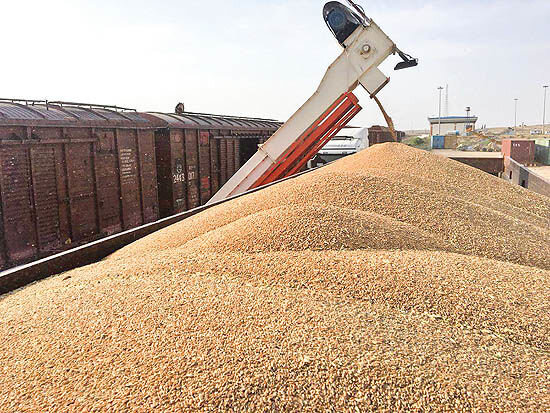Wheat import falls 40%

TEHRAN- Iran’s wheat import has dropped 40 percent in the current Iranian calendar year (began on March 21), the managing director of Iran Government Trading Corporation (GTC) announced.
Saeed Rad said that this year, with a 60 percent increase in the purchase of domestic wheat, the import of wheat decreased by 40 percent.
He said that this year 7.2 million tons of wheat was supplied from domestic production, adding that in order to meet the country's needs, 3.8 million tons of wheat has been also imported so far. In this way, the import of this product has decreased by more than 40 percent compared to last year.
Pointing out that in order to meet domestic needs and maintain strategic reserves, a part of the country's wheat needs is supplied from the import, the official said this product entered the country's ports through large ships, is unloaded, loaded and sent to the centers of consumption throughout the country.
Last week, the GTC announced that 3.117 million tons of basic commodities were imported into the country during the first six months of the current Iranian calendar year (March 21-September 22).
The imports of basic goods declined 29 percent compared to the previous year’s same period in which 4.405 million tons of such commodities had been imported.
The basic goods imported into the country are sent to the centers and storage facilities of these products throughout the country according to the transportation plan of the GTC, and then based on the needs of population centers, they are sent for distribution to all parts of the country.
The decrease in the imports of basic goods indicates that the country has performed better in meeting its needs domestically in comparison to the previous year.
In mid-August, GTC announced that since the beginning of the current year, every day a vessel carrying basic goods has entered the ports of the south and north of the country and the cargoes of these ships have been sent to storage centers after unloading.
The basic goods imported into the country include wheat, rice, and oil, which are purchased and imported from foreign sources to provide the country's strategic reserves, supply to consumption centers, and regulate the market.
MA/MA
Leave a Comment